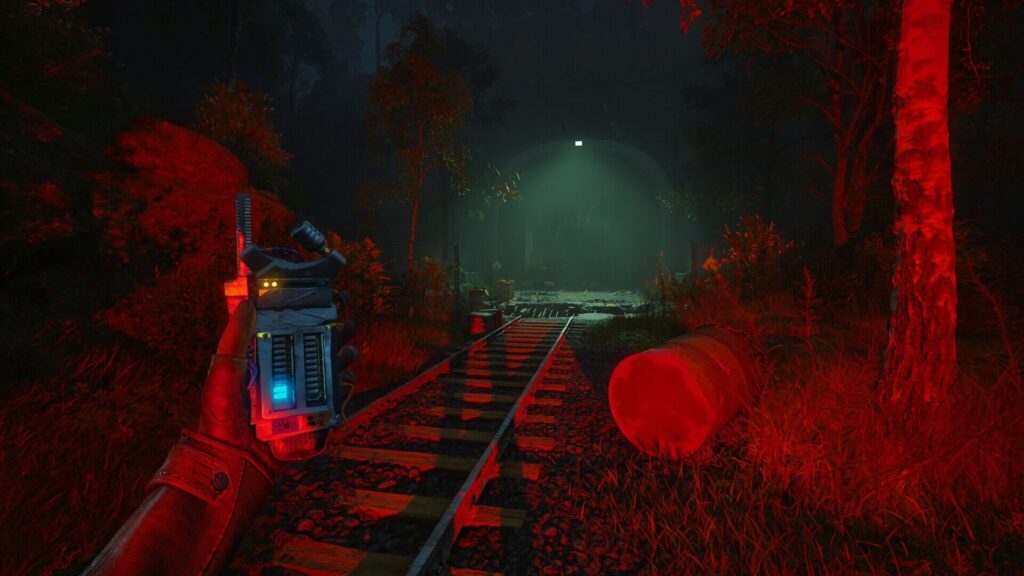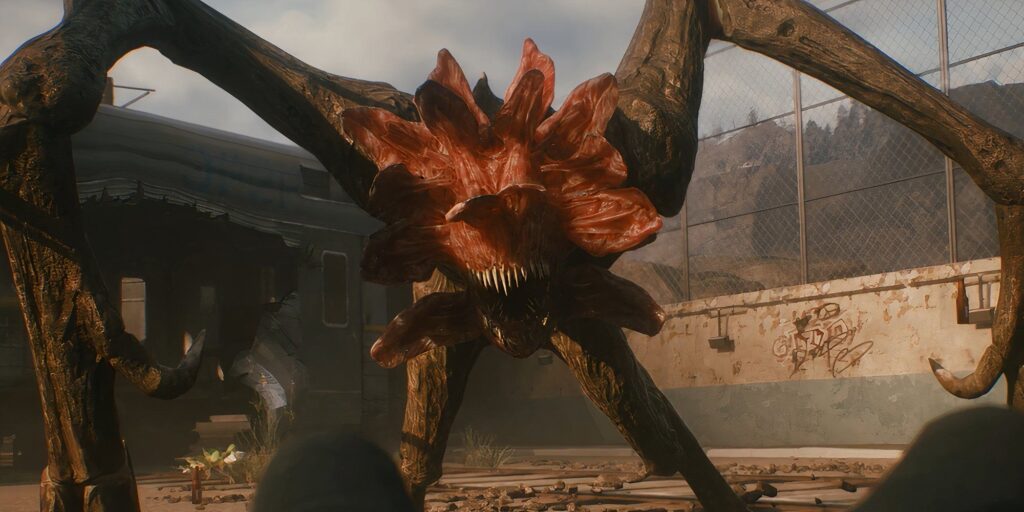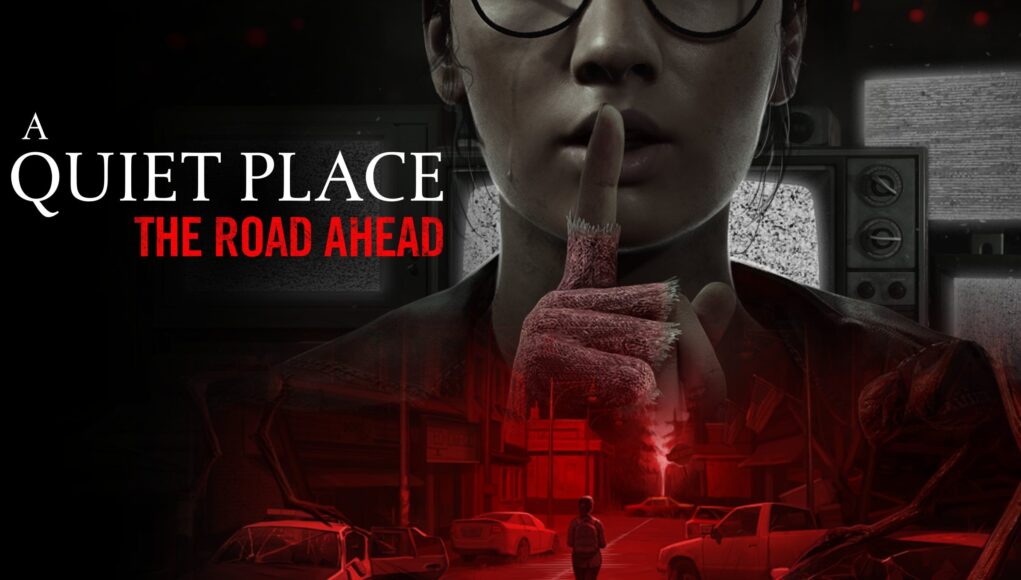By redefining stealth mechanics and turning sound into a weapon, A Quiet Place: The Road Ahead brings fresh tension and genuine terror to survival horror.
In a genre often dominated by jump scares and fast-paced action, A Quiet Place: The Road Ahead dares to go against the grain, weaving a slow-burn, first-person survival experience that immerses players into the series’ famously silent yet deadly world.
In A Quiet Place: The Road Ahead, players step into the tense, vulnerable shoes of Alex, a young woman navigating a world where even the slightest noise could spell doom. Her journey is unique—a slow and calculated road trip with a small group of allies where every footstep matters, each choice is critical, and patience becomes the ultimate survival skill.
From the outset, the game establishes a fresh kind of dread that pays tribute to the film series. Its detailed sound design and environmental cues constantly remind players that silence is the best strategy against creatures that hunt by sound. This is most effective in nighttime levels, where visibility is scarce, and players must decide between holding a flashlight or a phonometer, a device that monitors the noise Alex makes compared to her surroundings. This delicate trade-off forms the heart of the game, forcing players to think twice before every movement in their journey.
The game’s mechanics are innovative, turning stealth into an art form. Dodging everyday obstacles like tin cans, puddles, and creaky floors means not just pressing forward but genuinely planning each step. The phonometer, which Alex assembles early on, provides an intuitive measure of environmental noise. Its simplicity becomes a lifeline, constantly gauging Alex’s noise output in comparison to her surroundings, adding layers to the story’s tension. Coupled with the game’s brilliant sound work, these mechanics build a suspenseful atmosphere, capturing the anxious silence that defined the films.

In a twist that lends weight to the survival theme, Alex’s asthma becomes an additional challenge. This respiratory condition can turn even a close encounter into a life-or-death struggle. Under intense stress, Alex might start gasping for breath, requiring quick-time events to stave off a full-blown asthma attack that would alert the creatures. This unique gameplay element feels fitting, intensifying those heart-stopping moments when the alien looms nearby.
The game occasionally introduces tools like sandbags to quiet Alex’s steps and bricks or bottles to distract creatures, bringing a touch of creativity to its already novel pace. Sandbags, for instance, create paths for silent traversal, allowing players to leave open escape routes. Although some areas provide more resources than necessary, these mechanics add variety to the experience and underscore the importance of strategy in escaping danger.

While the game isn’t without minor hiccups, such as occasional bugs or checkpoint frustrations, its meticulous focus on detail adds charm. One of the most notable design choices is that sound calibration allows for mic integration—players can use their microphone to alert the aliens. This immersive element pulls players deeper into Alex’s world, making them wary of every sound, real or virtual, in their surroundings.
Despite some missed opportunities to deepen certain mechanics, the narrative holds attention. Alex’s journey is a harrowing one, full of narrow escapes and tense encounters. Some might argue that her backstory feels overly packed, but her emotional journey resonates, keeping the stakes personal. By the end of the 7-to-10-hour campaign, players are likely to feel deeply invested in her fate.
Ultimately, A Quiet Place: The Road Ahead succeeds in transforming a seemingly unconventional idea into a captivating experience. Through its innovative use of silence and noise, it crafts a chilling atmosphere and challenges survival horror norms. Fans of the film series will appreciate the homage to its world, while horror enthusiasts may discover a uniquely tense experience that stays with them long after the game is over.










